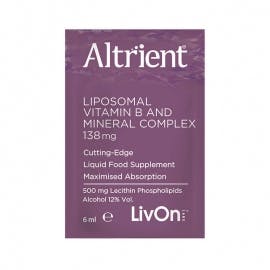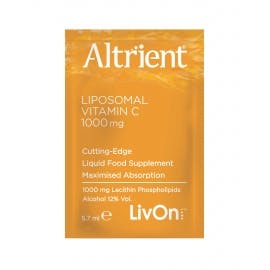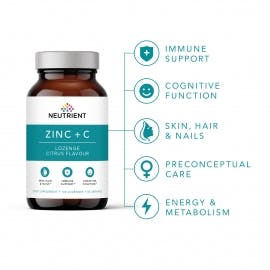Is Intermittent Fasting Secretly Sabotaging Your Hair?
Is Intermittent Fasting Secretly Sabotaging Your Hair?
Intermittent fasting is all the rage these days on social media, hailed for everything from weight loss to reduced risk for Alzheimer's disease and type 2 diabetes. However, an increasing number of people are worried about why their hair is falling out. If you’ve noticed changes in your hair since starting a fasting regime, you’re not imagining it. New research suggests that fasting could impact the delicate biological processes that support healthy hair growth, particularly if you’re not focusing on the right nutritional support.
The Link Between Intermittent Fasting and Hair Loss
A recent ‘Nature’ news article and a remarkable clinical trial published in ‘Cell’ reveal some surprising insights into how the body prioritises energy during fasting. Researchers have found that prolonged periods without food may trigger the body to divert energy away from non-essential functions, like hair growth, to conserve resources for vital organs and systems.1,2
At the centre of this process are hair follicle stem cells, which are responsible for regenerating hair. These cells require a steady supply of energy and nutrients to stay active. When the body enters a fasting state, the metabolism shifts, reducing the activity of these stem cells and potentially slowing down hair growth or even leading to increased shedding.3
This may be especially relevant for women, whose hormonal balance is more sensitive to dietary changes. However, men aren’t off the hook completely. Studies show that damage to hair follicles is not exclusive to women; men are also affected by cellular responses to metabolic stress from fasting.2 To make matters worse, if you combine fasting with low-calorie intake or micronutrient deficiencies, you may be creating an environment that is detrimental to scalp and hair health.
Can Intermittent Fasting Cause Long-Term Hair Thinning?
Hair goes through natural cycles of growth, rest, and shedding. But when the body is under nutritional stress, these cycles can become disrupted. According to research, one of the mechanisms observed during fasting is that stem cells in the hair follicles pause their activity.2 The longer they remain inactive, the harder it becomes to restart the growth phase. Eventually, this could result in:
- Thinner hair overall
- More hair on your brush or in the shower
- Slower regrowth after shedding
- A more visible scalp, especially around the parting
Nutritional Support: Key Nutrients for Healthy Hair Growth
While short-term fasting may not cause noticeable issues, ongoing or aggressive fasting strategies may increase the risk of nutrient depletion. If you’re trying intermittent fasting, it’s important to ensure your eating window includes nutrient-dense foods that support hair structure and scalp health. Your meals should include: protein, collagen, omega-3 essential fatty acids (EFAs), biotin, zinc, selenium, riboflavin, and vitamin C.
Vitamin C, for example, contributes to collagen formation for normal skin function; this includes the scalp, which serves as the foundation for healthy-looking hair. It also contributes to the protection of cells from oxidative stress, a key factor in ageing and inflammation.³ Vitamin D also plays an important role in hair health as it contributes to the process of cell division, a fundamental mechanism involved in the normal turnover and renewal of cells, including those within the hair follicle.
In addition to this, nutrients like biotin, zinc, selenium, EFAs and riboflavin play recognised roles in maintaining normal skin and hair, as well as supporting processes such as cell division, protection from oxidative stress, and normal energy metabolism.
Essential Nutrients That Help Prevent Hair Loss While Fasting
Intermittent fasting may offer some valuable health benefits, but it shouldn’t come at the cost of your hair. If you're noticing increased shedding, dullness, or thinning, it may be time to review your routine. Formulate a diet plan that includes the essential nutrients listed in the table below.
Nutrient | Food Source |
Vitamin C | Broccoli, Brussels sprouts, kale, bell peppers, cauliflower, cabbage, papaya, kiwi fruit, strawberries, blackcurrants, Acerola cherries, oranges, pineapple, mango, lemons, grapefruit, |
Biotin | Egg yolks, liver, almonds, sweet potatoes, sunflower seeds, oats |
Riboflavin | Dairy, eggs, liver, mushrooms, spinach, almonds |
Selenium | Brazil nuts, tuna, sardines, eggs, chicken, sunflower seeds |
Zinc | Pumpkin seeds, beef, chickpeas, lentils, cashews, oysters, eggs |
Collagen | Bone broth, chicken skin, pork skin, fish skin. Vegan sources of collagen can be found in supplement form, as it is not available from plants |
Vitamin D | Oily fish (salmon, mackerel, sardines), egg yolks, and wild mushrooms exposed to sunlight (chanterelles, morels) |
Omega-3 EFAs | Oily fish – salmon, sardines, mackerel, anchovies, herrings, hempseeds, flaxseeds, chia seeds, walnuts |
Should You Take Supplements to Support Hair During Fasting?
Although healthy, balanced nutrition is ideal, it's not always possible to follow a perfect diet. This is where supplements can help fill nutritional gaps when needed. Vitamin C, in particular, has been extensively studied for its health benefits, especially through collagen production and protection from oxidative stress. The Altrient C trial is one study that has highlighted how vitamin C supplementation may help strengthen and improve hair quality.
Altrient C: A Promising Nutritional Strategy
Recognising vitamin C's dual role in hair health: aiding collagen production and protecting against oxidative stress, Abundance & Health decided to put it to the test. The company commissioned an independent 12-week trial of its high-absorption Altrient liposomal vitamin C supplement.
The study, carried out by Princeton Consumer Research, asked participants to take 2,000mg (2 sachets) of Altrient C daily. Results showed measurable improvements in hair quality and appearance:
- +20.21% increase in hair and strand thickness
- +25.00% improvement in healthy appearance
- +30.21% better condition and feel
- +18.93% more hairs counted
- -50.89% reduction in breakage
- -37.50% reduction in hair loss
Participants also noted improvements in skin hydration and texture, pointing to wider beauty benefits beyond the hairline.
How to Protect Your Hair While Practising Intermittent Fasting
There’s no reason why intermittent fasting shouldn’t work in your favour if you are using your eating window sensibly and filling it with hair & scalp healthy nutrients. You might also find that, alongside nutrition, a gentle therapy like reflexology could also play a helpful role.
Reflexology involves applying pressure to specific points on the hands or feet and has been linked in early research to improvements in hair quality, particularly in women with alopecia recovering from chemotherapy.⁵ Adding this kind of holistic support to your routine could be a simple yet valuable part of your hair care strategy.
Written by: Jacqueline Newson BSc (Hons) Nutritional Therapy
References
Trafton, A. (2024). “Why fasting might cause hair loss.” Nature.
Chen, Han et al. Intermittent fasting triggers interorgan communication to suppress hair follicle regeneration. Cell, 2025; Volume 188, Issue 1, 157 - 174.e22
Chen et al. (2024). “Fasting suppresses hair follicle stem cell activation.” Cell.
EFSA Register: Vitamin C contributes to normal collagen formation and protection of cells from oxidative stress.
Ghavami H, Arjomand L, Radfar M, Khalkhali Hr. Effects of Reflexology Massage on Hair Regrowth After Chemotherapy-induced Alopecia Among Women with Cancer: A Randomised Clinical Trial. Bezmialem Science. 2020 Jul;8(3):215-221. doi:10.14235/bas.galenos.2019.3473.






